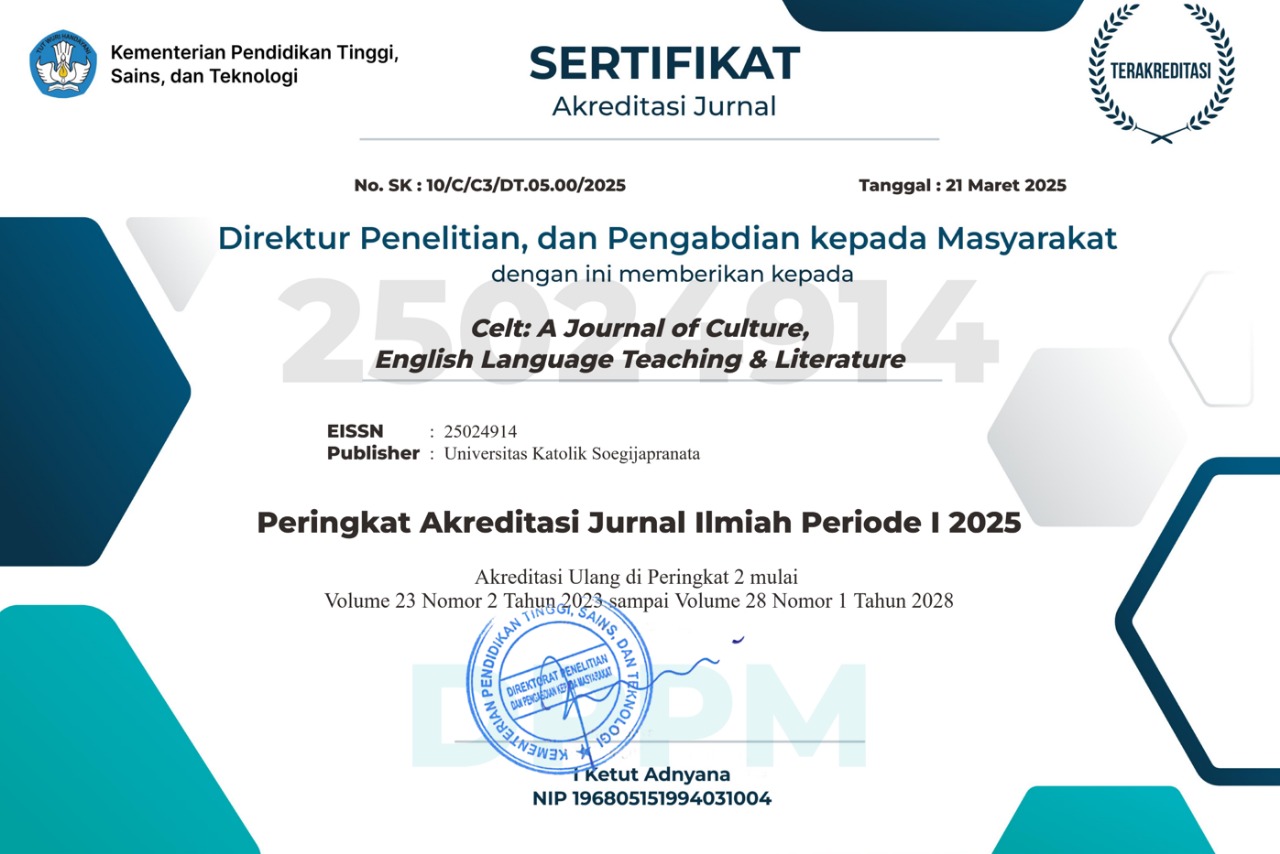POLITENESS PRINCIPLES:THEIR REALISATION IN INDONESIAN APOLOGIES
Abstract
Keywords
Full Text:
PDFReferences
Blum Kulka. S., J. House &: O. Kasper. Cross Cultural Pragmatics; Requests &
Apologies. New Jersey: Ablex Publishing Co., 1989.
Blum Kulka. S., &: E. Olshtain. Request & Apologies: A Cross Cultural Study of
Speech Act Realisation Patterns ( CCSARP). Applied Linguistics 5, 3., 1984.
Brown. P.&: S. Levinson. 1978. Politeness Some Universals in Language Usage.
Cambridge: Cambridge University Press, 1978.
Scollon. R. & S.B.K Scollon. Face in Interethnic Communication in Richards. J. &
R. Schmidt ( Eds ). Language and Communication. London : Longman.
Trosborg. A. Apology Strategies In Natives / Non - natives Journal of Pragmatics,
Vol II. 1987.
Wierzbicka. A. Different Cultures, Different Languages, Different Speech Acts.
Journal of Pragmatics. Vol 9. 1985.
Wierzbicka. A. Does Lmrguage Reflect Culturr ? Evidence/rom Australian English.
Language in Society. Vol. IS. 1986.
DOI: https://doi.org/10.24167/celt.v2i1.754
Copyright (c) 2017 Celt (A Journal of Culture, English Language Teaching & Literature)
| pISSN (print): 1412-3320 | eISSN (online): 2502-4914 |











